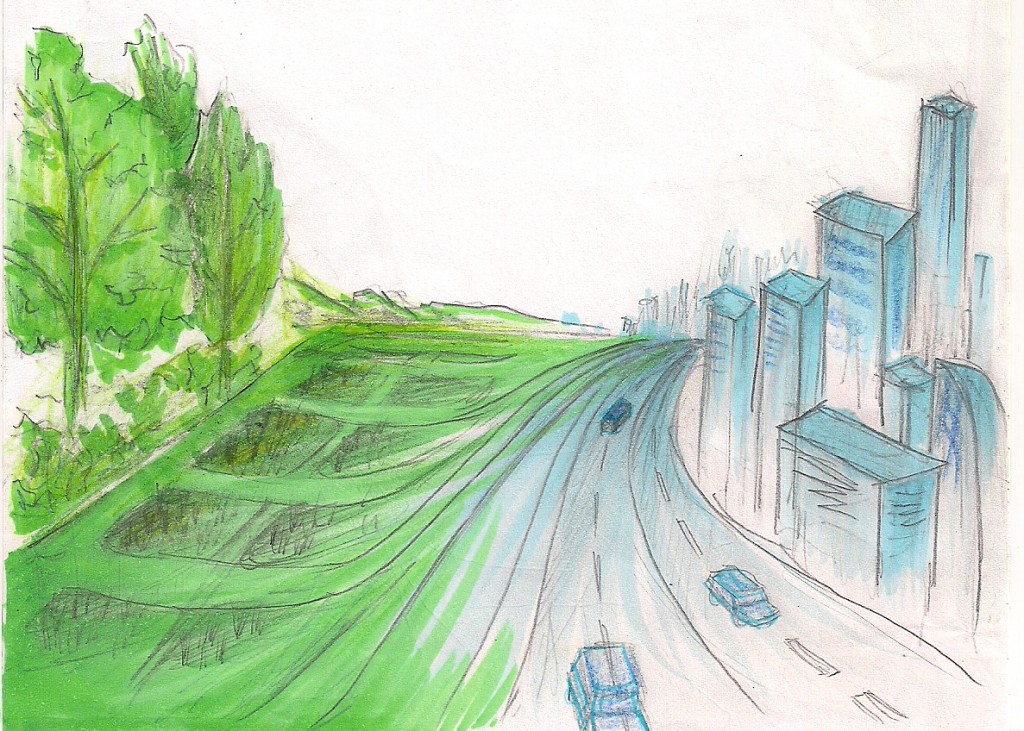
It was about a year ago that I posted this prompt on Allen Ginsberg’s American Sentences, thanks to former classmate Jessica Tyson; this week’s Friday Prompt is courtesy of another recent UW MFA graduate, Talia Shalev. She’s derived the exercise from a chapter in the anthology Contemporary American Poetry: Behind the Scenes (Longman, 2002), edited by Ryan Van Cleave, and writes:
Spend an hour in an urban setting that’s somewhat foreign to you. A Laundromat. A bus terminal. A French pastry shop. Record your observations and thoughts. Spend another hour in a more rural setting, such as a chicken farm, an apple orchard, or a fishing hole. At the very least, find a garden or park! Record your observations and thoughts.
Write a poem about the urban setting that uses words, ideas, and images exclusively from your rural setting, and then write a poem about the rural setting that uses words, ideas, and images exclusively from your urban setting. Does forcing yourself into using unusual vocabulary choices allow you greater freedom? Does it make intuitive leaps easier? How might this translate into your other poems?
What I find compelling about this prompt is the way it forces the “translation” or “transmutation” of observational detail from one context to another—a gesture that can be taken in a number of directions. The same process can be used to navigate not only the in-betweens of rural and urban settings, but also the private and the public, the mainstream and the “minority,” the high and the low. While I think it’s important that the prompt remain grounded in specific locales (ie. places that can be physically inhabited by the poet), it seems totally possible that a person could make the same linguistic leap from, say, one part of town to another—and in the process, cast light upon new ways of constructing difference, culture and place.